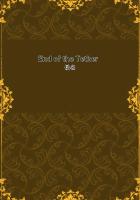Alas, in the first days of September,--Friedrich's Letter is dated "Wesel, 2d" (and has the STRASBURD DOGGEREL enclosed in it),--the Brussels Postman delivers far other intelligence at one's door;very mortifying to Madame: "That his Majesty is fallen ill at Wesel; has an aguish fever hanging on him, and only hopes to come:" VOILA, Madame!--Next Letter, Wesel, Monday, 5th September, is to the effect: "Do still much hope to come; to-morrow is my trembling day; if that prove to be off!"--Out upon it, that proves not to be off; that is on: next Letter, Tuesday, September 6th, which comes by express (Courier dashing up with it, say on the Thursday following) is,--alas, Madame!--here it is:--KING FRIEDRICH TO M. DE VOLTAIRE AT BRUSSELS.
"WESEL, 6th September, 1740.
"MY DEAR VOLTAIRE,--In spite of myself, I have to yield to the Quartan Fever, which is more tenacious than a Jansenist;and whatever desire I had of going to Antwerp and Brussels, I find myself not in a condition to undertake such a journey without risk. I would ask of you, then, if the road from Brussels to Cleve would not to you seem too long for a meeting; it is the one means of seeing you which remains to me. Confess that I am unlucky;for now when I could dispose of my person, and nothing hinders me from seeing you, the fever gets its hand into the business, and seems to intend disputing me that satisfaction.
"Let us deceive the fever, my dear Voltaire; and let me at least have the pleasure of embracing you. Make my best excuses [polite, rather than sincere] to Madame the MARQUISE, that I cannot have the satisfaction of seeing her at Brussels. All that are about me know the intention I was in; which certainly nothing but the fever could have made me change.
"Sunday next I shall be at a little Place near Cleve,"--Schloss of Moyland, which, and the route to which, this Courier can tell you of;--"where I shall be able to possess you at my ease. If the sight of you don't cure me, I will send for a Confessor at once.
Adieu; you know my sentiments and my heart. [Preuss, <italic>
OEuvres de Frederic, <end italic> xxii. 27.] FREDERIC."After which the Correspondence suddenly extinguishes itself;ceases for about a fortnight,--in the bad misdated Editions even does worse;--and we are left to thick darkness, to our own poor shifts; Dryasdust being grandly silent on this small interest of ours. What is to be done?
PARTICULARS OF FIRST INTERVIEW, ON SEVERE SCRUTINY.
Here, from a painful Predecessor whose Papers I inherit, are some old documents and Studies on the subject,--sorrowful collection, in fact, of what poor sparks of certainty were to be found hovering in that dark element;--which do at last (so luminous are certainties always, or "sparks" that will shine steady) coalesce into some feeble general twilight, feeble but indubitable;and even show the sympathetic reader how they were searched out and brought together. We number and label these poor Patches of Evidence on so small a matter; and leave them to the curious:--No. 1. DATE OF THE FIRST INTERVIEW. It is certain Voltaire did arrive at the little Schloss of Moyland, September llth, Sunday night,--which is the "Sunday" just specified in Friedrich's Letter. Voltaire had at once decided on complying,--what else?--and lost no time in packing himself: King's Courier on Thursday late; Voltaire on the road on Saturday early, or the night before.
With Madame's shrill blessing (not the most musical in this vexing case), and plenty of fuss. "Was wont to travel in considerable style," I am told; "the innkeepers calling him "Your Lordship (M. LE COMTE)." Arrives, sure enough, Sunday night; old Schloss of Moyland, six miles from Cleve; "moonlight," I find,--the Harvest Moon. Visit lasted three days. [Rodenbeck, p. 21; Preuss, &c. &c.]
No. 2. VOLTAIRE'S DRIVE THITHER. Schloss Moyland: How far from Brussels, and by what route? By Louvain, Tillemont, Tongres to Maestricht; then from Maestricht up the Maas (left bank) to Venlo, where cross; through Geldern and Goch to Cleve: between the Maas and Rhine this last portion. Flat damp country; tolerably under tillage; original constituents bog and sand. Distances I guess to be: To Tongres 60 miles and odd; to Maestricht 12 or 15, from Maestricht 75; in all 150 miles English. Two days' driving?
There is equinoctial moon, and still above twelve hours of sunlight for "M. le Comte."No. 3. OF THE PLACE WHERE. Voltaire, who should have known, calls it "PETIT CHATEAU DE MEUSE;" which is a Castle existing nowhere but in Dreams. Other French Biographers are still more imaginary.
The little Schloss of Moyland--by no means "Meuse," nor even MORS, which Voltaire probably means in saying CHATEAU DE MEUSE--was, as the least inquiry settles beyond question, the place where Voltaire and Friedrich first met. Friedrich Wilhelm used often to lodge there in his Cleve journeys: he made thither for shelter, in the sickness that overtook him in friend Ginkel's house, coming home from the Rhine Campaign in 1734; lay there for several weeks after quitting Ginkel's. Any other light I can get upon it, is darkness visible. Busching pointedly informs me, [<italic> Erdbeschreibung, v. 659, 677.] "It is a Parish [or patch of country under one priest], and Till AND it are a Jurisdiction"(pair of patches under one court of justice):--which does not much illuminate the inquiring mind. Small patch, this of Moyland, size not given; "was bought," says he, "in 1695, by Friedrich afterwards First King, from the Family of Spaen,"--we once knew a Lieutenant Spaen, of those Dutch regions,--"and was named a Royal Mansion ever thereafter." Who lived in it; what kind of thing was it, is it? ALTUM SILENTIUM, from Busching and mankind. Belonged to the Spaens, fifty years ago;--some shadow of our poor banished friend the Lieutenant resting on it? Dim enough old Mansion, with "court" to it, with modicum of equipment; lying there in the moonlight;--did not look sublime to Voltaire on stepping out.















